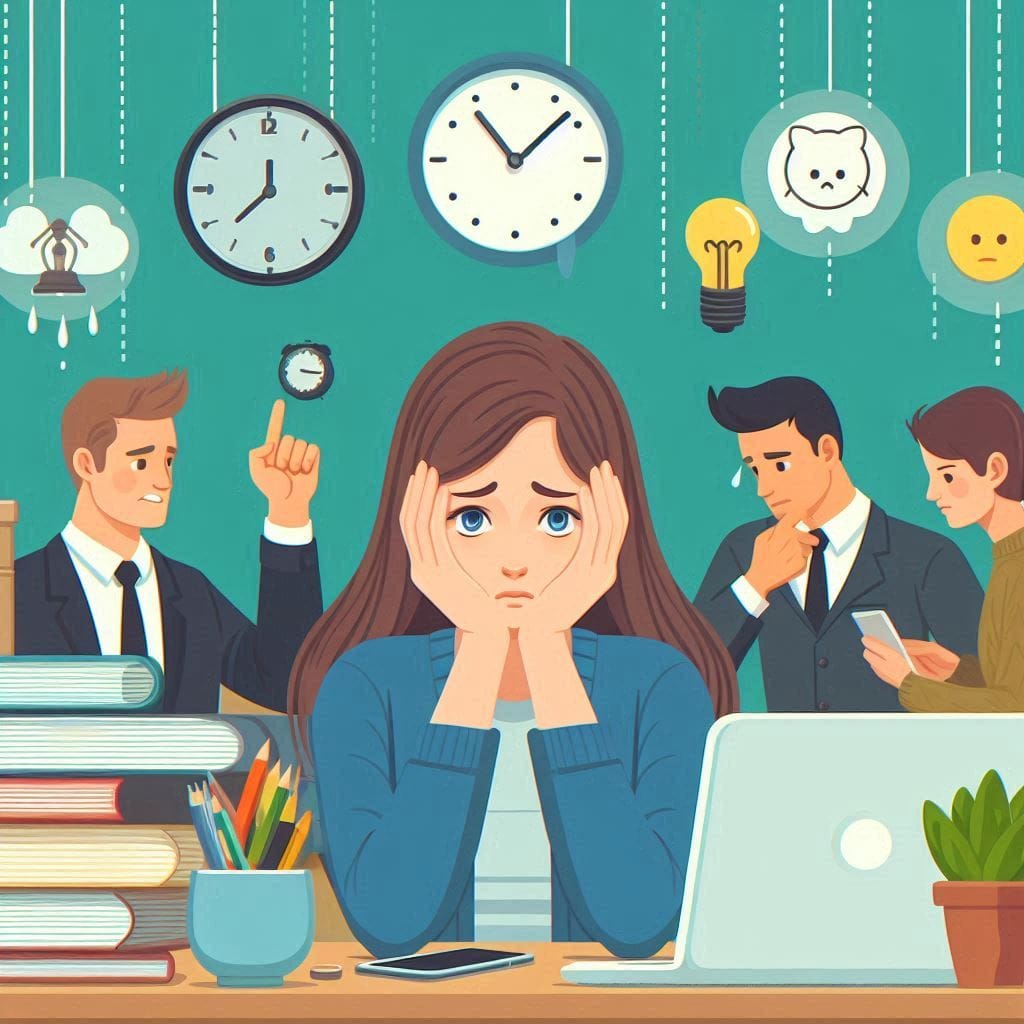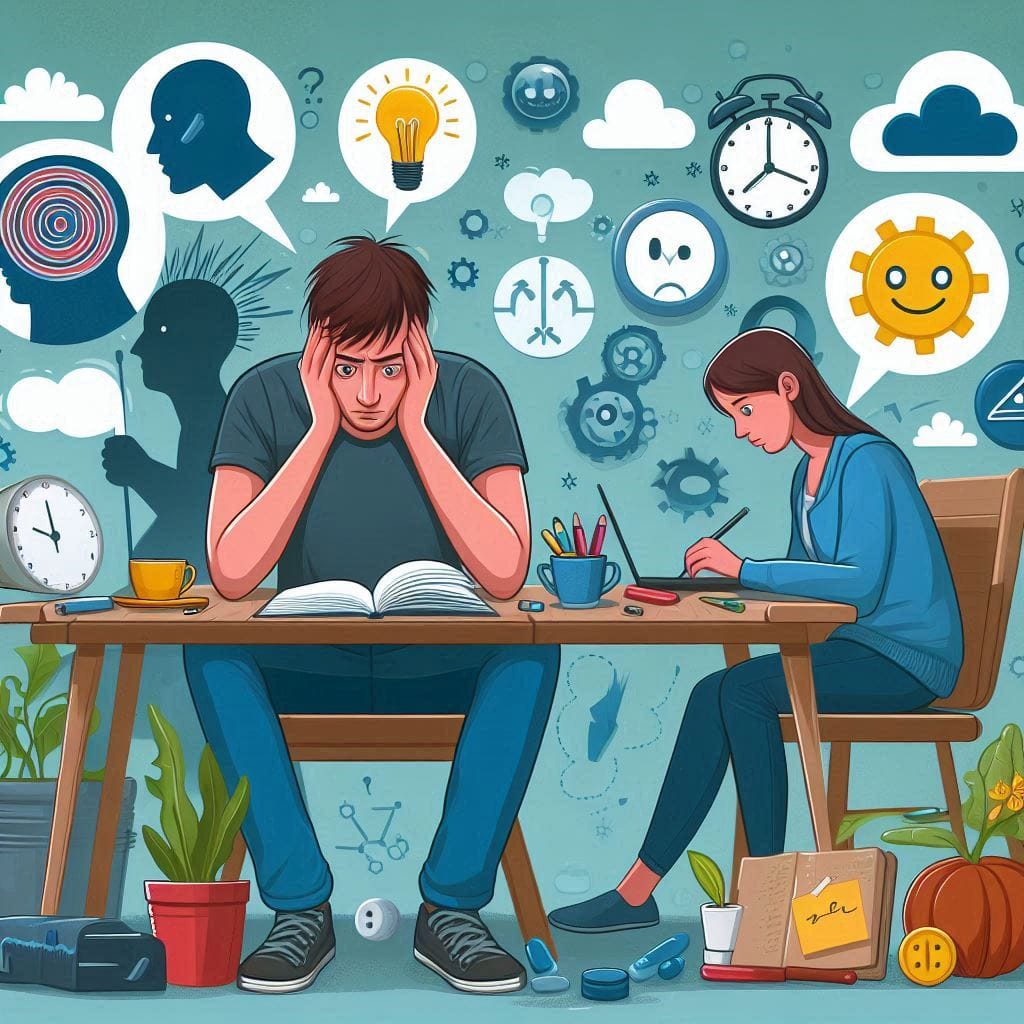Introduction
How to overcome social anxiety in everyday situations can make even the simplest social interactions feel overwhelming. Whether it’s speaking in a meeting, attending a party, or even making a phone call, the fear of judgment can be paralyzing. Millions of people struggle with social anxiety daily, but the good news is that it can be managed and even overcome with the right strategies.
By understanding the root causes of social anxiety and applying practical techniques, you can learn to navigate social situations with greater confidence and ease. This guide will provide you with actionable steps to help you overcome social anxiety in everyday situations and lead a more fulfilling social life.

What is Social Anxiety?
Social anxiety, also known as social anxiety disorder (SAD) or social phobia, is the intense fear of being judged, embarrassed, or rejected in social or performance-based situations. It goes beyond normal nervousness and can interfere with daily activities, relationships, and work.
Common symptoms of social anxiety:
- Excessive self-consciousness in social settings
- Fear of being watched or judged by others
- Avoidance of social interactions or public speaking
- Rapid heartbeat, sweating, or trembling in social situations
- Difficulty making eye contact or speaking with unfamiliar people
- Overanalyzing social interactions before and after they happen
If you experience any of these symptoms, you’re not alone. Social anxiety affects about 7% of the population at any given time and many more experience milder forms of it. However, with persistence and the right techniques, you can overcome it.
1. Identify and Challenge Negative Thoughts
One of the biggest contributors to social anxiety is negative self-talk. Thoughts like “I’ll embarrass myself” or “People will think I’m awkward” can fuel anxiety and make social situations more stressful than they need to be.
To break this cycle:
- Identify these negative thoughts when they arise.
- Challenge them by asking, “Is this thought based on facts or assumptions?”
- Replace them with positive affirmations like, “I am capable of handling this situation.”
Example Thought Challenge:
❌ Negative Thought: “Everyone at the party will think I’m boring.”
✅ Positive Replacement: “People are more focused on themselves than on me. I have interesting things to share.”
By consciously shifting your mindset, you can reduce the power of anxiety-triggering thoughts.
2. Practice Gradual Exposure to Social Situations
Avoiding social interactions provides short-term relief but reinforces social anxiety in the long run. Instead, try gradual exposure therapy, a technique that involves facing your fears step by step:
- Start small: Make eye contact and smile at a stranger.
- Level up: Engage in short conversations, such as greeting a coworker or asking a question at a store.
- Challenge yourself: join group conversations, attend social gatherings, or give a short presentation at work.
Each time you successfully navigate a social situation, your confidence grows, and social anxiety loses its grip on you.
3. Develop Stronger Social Skills Through Practice
Many people with social anxiety fear they’ll say or do something awkward. Practicing social skills can help ease these concerns. Here’s how:
- Active Listening: Show genuine interest in others by nodding, making eye contact, and asking follow-up questions.
- Small Talk Practice: Talk about neutral topics like hobbies, recent events, or travel.
- Role-playing: Practice conversations with a trusted friend or even in front of a mirror.
The more you practice, the more natural social interactions will feel.
4. Learn Relaxation Techniques to Manage Anxiety
Social anxiety often triggers physical symptoms such as a racing heart, sweating, or shaky hands. Managing your body’s stress response can help you stay calm.
- Deep Breathing: Inhale deeply through your nose for four seconds, hold for four seconds, and exhale slowly for six seconds.
- Progressive Muscle Relaxation: Tense and relax different muscle groups to release physical tension.
- Mindfulness Meditation: Focus on the present moment rather than worrying about past or future interactions.
These techniques can help you stay composed and in control in social settings.

5. Shift the Focus Away from Yourself
People with social anxiety often overanalyze their behavior, worrying about how they appear to others. A helpful strategy is to shift your focus outward.
- Pay attention to what others are saying instead of how you’re being perceived.
- Ask open-ended questions to keep conversations flowing naturally.
- Engage in activities that take the focus off you, such as volunteering or group hobbies.
By directing your attention outward, you’ll feel less self-conscious and more present in social situations.
6. Reframe Social Anxiety as Excitement
Did you know that anxiety and excitement trigger the same physiological responses? Instead of labeling your anxious feelings as fear, reframe them as excitement.
For example:
- Instead of thinking, “I’m so nervous about this meeting,” say, “I’m excited to share my ideas.”
- Instead of fearing judgment, remind yourself that people are generally supportive and not overly critical.
This mindset shift can make social interactions feel more positive and less intimidating.
7. Set Small, Achievable Social Goals
Setting achievable social goals can boost your confidence over time. Start with small, specific objectives such as:
- Starting a conversation with a coworker once a day
- Attending a social event for at least 30 minutes
- Making eye contact and smiling at three strangers
As you meet these goals, gradually increase their difficulty. Each success reinforces your ability to handle social situations.
8. Adopt a Healthy Lifestyle to Reduce Anxiety
Your overall health impacts your anxiety levels. Simple lifestyle changes can make a big difference.
- Exercise regularly. Physical activity reduces anxiety and boosts confidence.
- Eat a balanced diet. Avoid excessive caffeine and sugar, which can increase anxiety.
- Get enough sleep. Poor sleep increases stress and anxiety levels.
- Limit alcohol and nicotine. Both substances can worsen anxiety symptoms.
A healthy body supports a healthy mind, making social interactions easier to handle.
9. Seek Support from Others
You don’t have to overcome social anxiety alone. Support from friends, family, or a therapist can provide encouragement and accountability. Consider:
- Joining a social skills group to practice interactions in a safe environment.
- Talking to a trusted friend about your social anxiety.
- Seeking professional help, such as cognitive behavioral therapy (CBT), which is highly effective for social anxiety.
Therapy can provide personalized strategies to help you feel more comfortable in social situations.
10. Accept That Perfection Is Unnecessary
Many people with social anxiety feel they must be perfect in social interactions. The truth is, nobody is perfect—and that’s okay! Mistakes are a natural part of human interaction.
- If you stumble over your words, laugh it off and continue.
- If there’s an awkward silence, don’t panic—just ask a question to keep the conversation going.
- Remember, most people don’t notice or remember small mistakes.
Letting go of the need for perfection allows you to enjoy social interactions rather than fear them.
How I Overcame Social Anxiety
Social anxiety once controlled my life—I feared judgment, avoided conversations, and dreaded social events. But I knew I had to change.
How I Overcame It
Challenged Negative Thoughts: I questioned my fears and replaced them with positive affirmations.
Stepped Out of My Comfort Zone: Small actions like making eye contact and engaging in short conversations helped build confidence.
Accepted Silence: I learned that pauses in conversation are natural.
Practiced self-compassion—I stopped overanalyzing interactions and embraced mistakes.
Used relaxation techniques—deep breathing and mindfulness helped calm my nerves.
Where I Am Now
I’m not anxiety-free, but I no longer let fear control me. If you struggle with social anxiety, take small steps, be patient, and keep going—you can overcome it!

Looking for more mental health tips? Check out our guide on Boosting Mental Well-being or visit the Anxiety & Depression Association of America (ADAA) for expert advice on managing anxiety
FAQs About Overcoming Social Anxiety
Q1: How long does it take to overcome social anxiety?
A: The timeline varies, but with consistent effort, many people notice improvements within weeks to months.
Q2: Can social anxiety go away completely?
A: While social anxiety may not disappear entirely, it can be managed effectively with the right strategies.
Q3: Are there natural remedies for social anxiety?
A: Yes! Exercise, a balanced diet, deep breathing, and mindfulness practices can help reduce anxiety symptoms.
Conclusion
Overcoming social anxiety takes time, but with patience and practice, you can gain confidence in social situations. By challenging negative thoughts, gradually facing social fears, using relaxation techniques, and setting achievable goals, you can break free from social anxiety’s grip.
Looking for more mental health tips? Explore our guide on 7 Free Mental Health Apps Everyone Should Try for actionable strategies!
pingback: 10 Simple Ways to Boost Your Mental Health at Home

